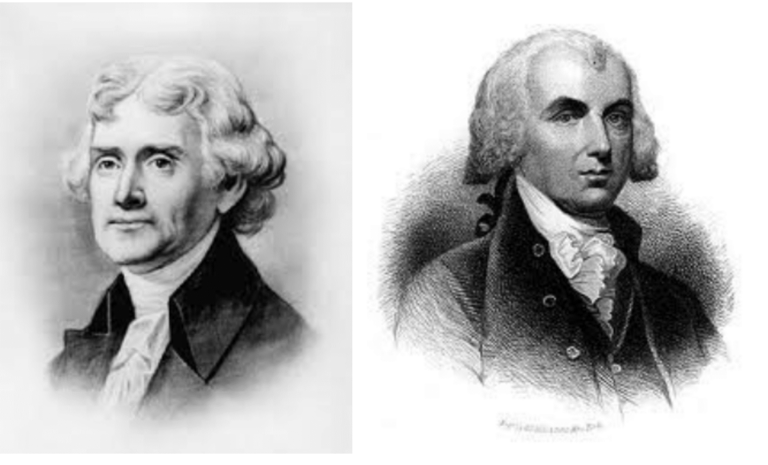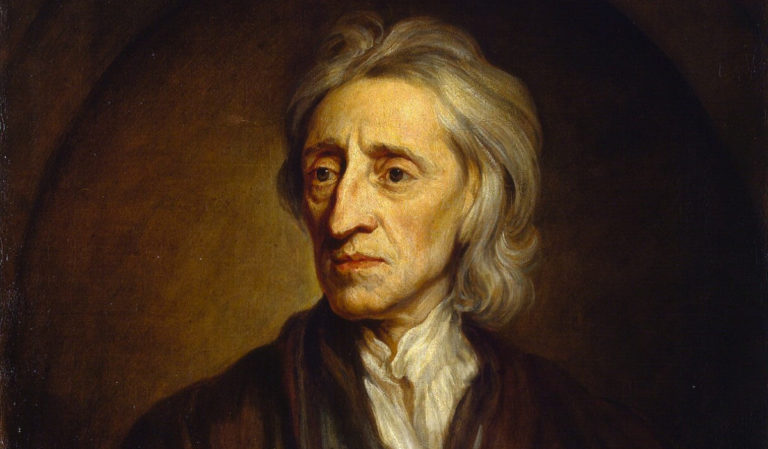Most people today have little to no familiarity with any of the principles that influenced the founders. Below, you’ll find six important resources hand-picked by Thomas Jefferson and James Madison. You can also find links to each in this podcast episode – “The Founders’ Education.”
John Locke
Chapter 10 of the forms of a Common-wealth
Locke begins by defining the three fundamental forms of government. When men first unite into a society, they have all the power of the community naturally in themselves.
Chapter 9 – The ends of Civil Society
Having set out what constitutes a civil society and how civil societies are formed, Locke sets about discussing what why would any man in a state of nature join a civil society, and what is the purpose of end of that civil society. He reminds us that in a state of nature every man has … Read more
“Of the beginning of Civil Society” – Part 3
Further treating the idea of consent, he describes consent. A child of an English man and woman born in France is subject to neither the king of England nor the king of France, except as much as they subject to the law of the land.
“Of the beginning of Civil Society” – Part 2
We see this delegation and retention of power in Exodus 22. In general, the adjudication of theft is left to society. The theft is brought before the judges to determine guilt and the amount that must be repaid. However, it begins in Exodus 22:2 with the principle that there is no guilt in killing someone who breaks into your house at night.
“Of the beginning of Civil Society” – Part 1
John Locke having defined what qualifies as a civil society in Chapter Seven. That it is not merely family groups, or master-slave relationships, but is a coming together of equals for mutual benefit and protection. He opened with this declaration which ought to be familiar to the people of New Hampshire.
Entering the mind of John Locke – The Purpose of Government
We have almost completely lost the understanding of the purpose of government. Republicans and Democrats alike, fight over policy, but who is right? We have plenty of sources we can look to to find our path to prosperity. And I don’t just mean financially, but morally & spiritually.
Of the State of Nature
Locke’s second Chapter is on the concept state of nature. Locke then states that having defined political power, one must understand the it from the original from which it is derived. That is the ideal state of nature. Locke’s ideal state of nature is important because it is his baseline, that reference point against which … Read more
An Essay Concerning the True Original, Extent and End of Civil Government
So now we begin on Locke’s Second Treatise, the positive description of the nature of government. Locke’s Second Treatise consists of 19 Chapters, each titled “Of … ” Locke has been accused even by his adherents of forsaking scripture, I disagree. In fact, he is the first modern political theorist to rely exclusively on scripture and to show how the correct law of nature will always agree with revealed law. If it does not, it is not correct. Therefore, I will take pains to underscore his references to scripture.
Of Political Power
His first act is to recap his dissection of Sir Robert Fuller’s treatise as follows taken directly:
- Firstly. That Adam had not, either by natural right of fatherhood or by positive donation from God, any such authority over his children, nor dominion over the world, as is pretended.
- Secondly. That if he had, his heirs yet had no right to it.
- Thirdly. That if his heirs had, there being no law of Nature nor positive law of God that determines which is the right heir in all cases that may arise, the right of succession, and consequently of bearing rule, could not have been certainly determined.
Of Treatises of Government
At the outset, I defined this effort as a discussion of John Locke’s Second Treatise of Government. Of course, as the name suggests, there is also a First Treatise of Government which I had not as yet read. Therefore, I set to reading Locke’s First Treatise to find out what its relationship is to the Second. Was it a first draft supplanted by the Second or was the Second a continuation of the First.
Locke’s First Treatise of Government is in fact a rebuttal to a work by Sir Robert Fuller who sought to justify divine right kings. He found Fuller’s work to be generally absurd, and proceeded to spend great effort to expose those absurdities. Locke accuses Fuller of making vague and repetitive arguments, which in turn causes Locke’s rebuttal to be repetitive as well. Having satisfied with himself that he had debunked Fuller’s work, Locke set about defining what in fact does constitute legitimate government. Lock had in fact at least begun his Second Treatise when he was writing the last chapters of his First Treatise since he makes direct reference to the Sixth Chapter of his Second Treatise regarding paternal power.
Of John Locke
Having discussed the definitions of martial law and militia, it is time to begin the discussing the object of our study, the political philosophies of John Locke and roots of our Republics in his philosophies. To that end I will begin with who is John Locke. I myself have just finished a 400 page biography of John Locke, “John Locke, Philosopher of American Liberty”. As I began it, it seemed were firmly founded on John Locke’s political philosophy.
John Locke was born in 1632 in Pensford, Somersetshire in England to Puritan parents. As a Puritan, he would have been inculcated in the principles of self-government found in the 1599 Geneva Bible. This is the same religious perspective held by the Pilgrims who traveled to America from 1618 to 1623.
1632 was in the midst of the tug of war between King and Parliament, Catholicism and Protestantism, that led to the English civil war. This civil war was between
Notable Quote: Necessity of Rule of Law to Freedom, John Locke
“Freedom of men under government is to have a standing rule to live by, common to every one of that society, and made by the legislative power erected in it; a liberty to follow my own will in all things, where the rule prescribes not: and not to be subject to the inconstant, uncertain, arbitrary … Read more
American Exceptionalism – hoping it is more than a campaign slogan
This caught my eye as one of the things that Romney said after announcing that Paul Ryan was to be his Veep pick:
“I love America. We’re going to restore American principles. We love this country. We don’t want to change it. We don’t want to transform it. We want to restore the principles of America that made us the hope of the earth.”
Again, I ask you, loyal reader, to compare that, going back to our Founders vision, to what Obama has said:



